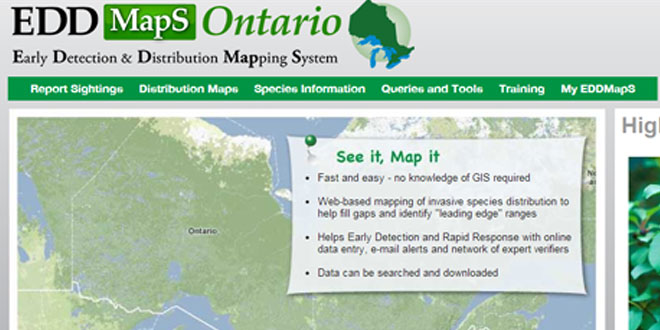ONTARIO—Leaders from the Northwestern Ontario Municipal Association (NOMA), the Federation of Northern Ontario Municipalities (FONOM) and the Rural Ontario Municipal Association (ROMA) have expressed deep concerns with the proposed Ministry of Natural Resources and Forestry (MNRF) plans to post a draft Species at Risk (SAR) Guide to the Environmental Registry for 28 species.
The three groups, who represent communities across the province, expressed frustration that the MNRF has failed to consult and work with affected stakeholders and forestry, farming and other natural resource dependent communities on the development of the draft SAR guide.
The Environmental Registry, a database that holds information about environmental proposals and decisions made by the Ontario government, allows the public to provide comment on an issue prior to becoming policy. However, based on past experience, there is often little change to a proposal once it has been posted.
“There is significant risk of job losses and shutting down the economy in rural and Northern Ontario in the immediate future and preventing growth over the long term throughout Ontario if the province moves forward with the proposed prescriptions for 28 species, “ said FONOM president Al Spacek in the release. “The Ontario government’s commitment to consult with municipalities has been insincere, especially given how detrimental this would be for so many of our communities.”
Ontario has been recognized as a world leader for providing a balanced and sustainable forest management plan through the Crown Forest Sustainability Act (CFSA). The CFSA protects species at risk while managing industry objectives as it takes into consideration the social, economic and environmental well-being of a forest, including species and their habitats; while the Endangered Species Act (ESA) only takes individual species and their habitats into consideration.
“Municipal leaders have consistently requested the MNRF complete and share with municipalities a socio-economic impact analysis on all policy impacting forestry,” said David Canfield, past president of NOMA.
“The Ministry has conducted analysis for caribou, and the analysis clearly shows that mills will close! This will decimate the forest industry and put families who rely on this employment in a serious position,” said Mr. Canfield.
“ROMA is of the opinion that plans to post a draft Species at Risk (SAR) Guide to the Environmental Registry for 28 species is misinformed and a complete reversal of the Ontario government’s commitment to consult with municipalities on this matter. The detrimental effect on forestry, farming and other industries is obvious. We would ask that the Ministry of Natural Resources and Forestry immediately reconsider this initiative,” stated Ron Holman, chair of ROMA.
NOMA, FONOM and ROMA continue to remind the government that they committed in 2007 to realizing that the CFSA was equivalent to the ESA by acknowledging that the forest sector must implement SAR prescriptions. In 2013 the Ministry continued to recognize that forest management plans already include provisions for species at risk protection and also committed to establishing a panel to review the linkages between CFSA and the ESA. This panel was never created.





